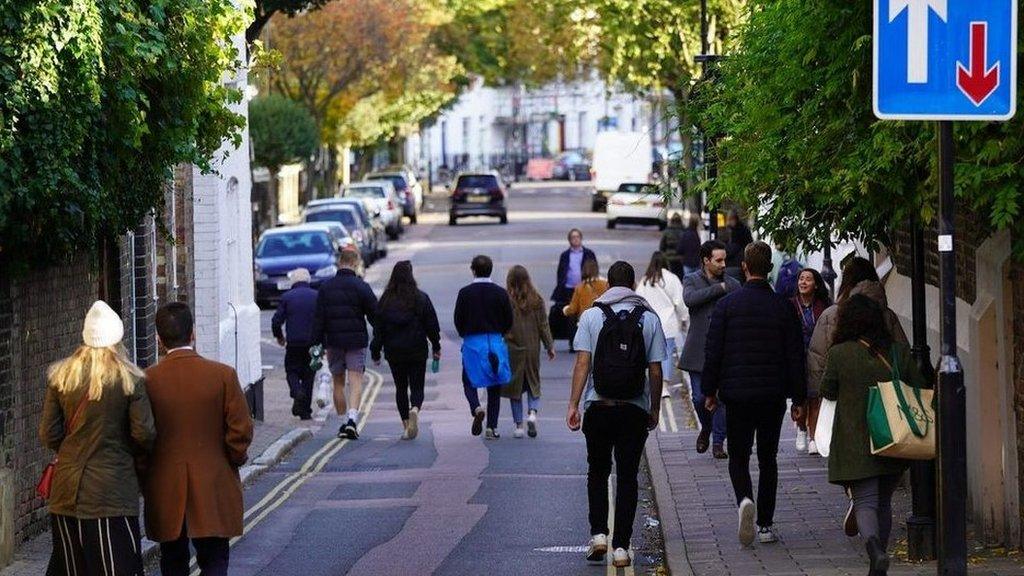London transport faces new reality as strikes dominate
- Published
- comments
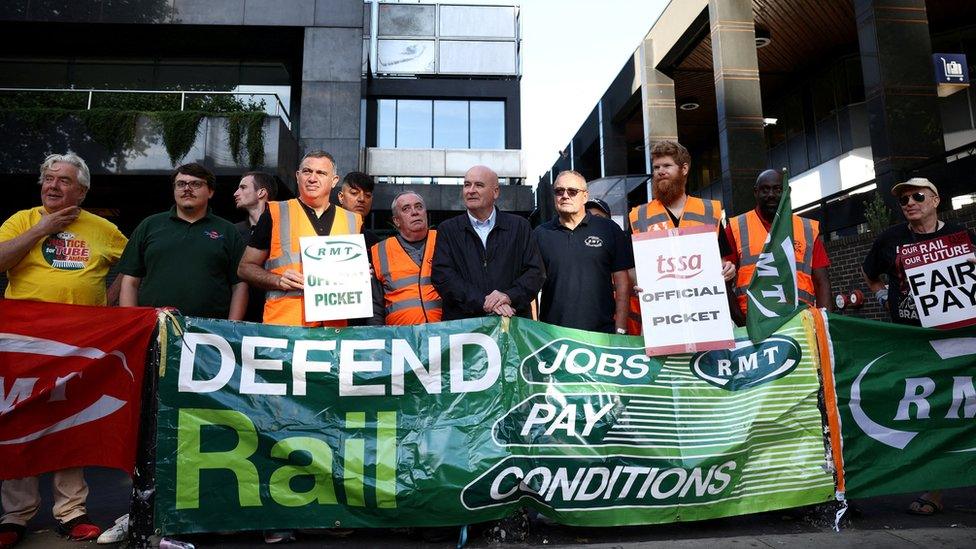
General secretary of the RMT Mick Lynch joined striking workers on a picket line in London recently
2022 has been the year of disputes and disruption. Transport workers remain deeply embroiled in bitter quarrels with their employers, and a new era of travel appears to be setting in around them.
Deserted by their customers during the first fearful days of the Covid-19 pandemic, the transport networks took a huge, unexpected financial hit.
To make matters worse for the transport authorities, it looks like home working is here to stay.
Many of the Monday-to-Friday commuters whose cash once propped up our rail companies and the Tube have turned away for at least part of their week.
Leisure travel has seen a revival, but it has not been enough to balance the books.
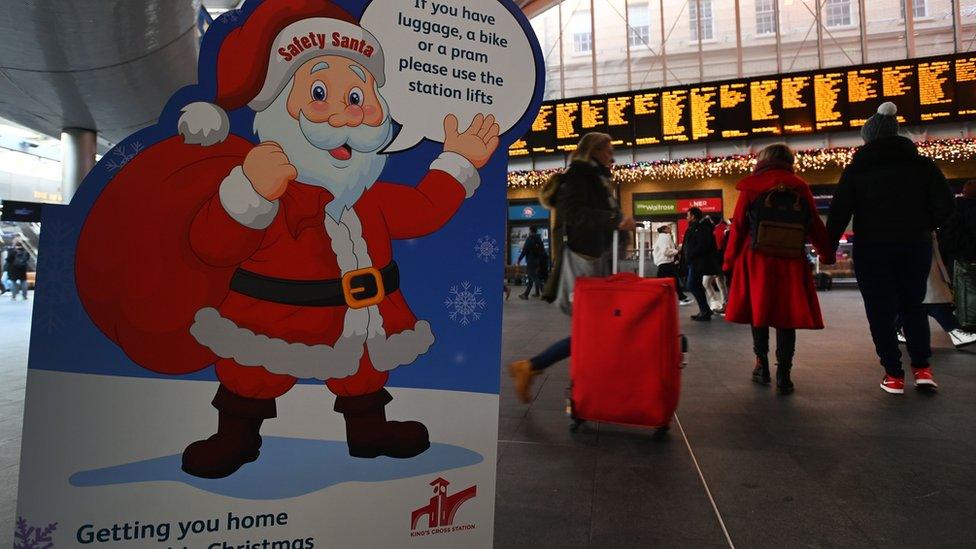
Rail users have had to endure several days of strikes in the run up to Christmas, with more to follow
It means something has to change and the industry must tighten its purse strings, the government has said.
Transport for London (TfL) had to make £500m in savings and review staff pensions to secure the taxpayer-funded bailout which allowed it to survive.
Rail companies, meanwhile, are trying to make savings by changing the role of train guards and closing ticket offices.
The fear of job insecurity on top of this cost of living crisis has driven union members to strike several times this year.
Stuck in the middle are the passengers and countless businesses that rely on their footfall.
Even in this new age of home working, nurses, teachers and many others must still all battle into work.
London's nightlife industry and the West End, big casualties of the pandemic, have lost more business as customers struggle to reach them.
And herein lies a challenge for the striking workers - can they bank on all those passengers returning?
The less dependable public transport becomes, the more customers may permanently turn away and develop new traveling habits.
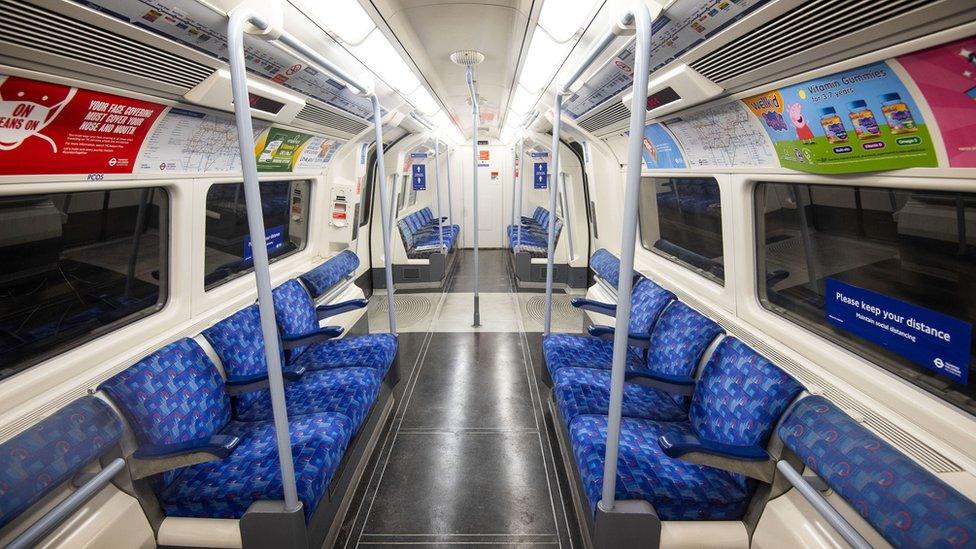
Rush hour Tube services were deserted during national lockdowns
This year has also brought some big developments, which may encourage or force some of us back on to public transport.
First - the long-awaited Elizabeth line. Its opening was years late but a joyous occasion nonetheless.
However, as it ran so grossly over-budget, there perhaps doesn't seem to be much left in the pot to fund any other projects.
Another big infrastructure scheme is the planned further extension of TfL's Ultra Low Emissions Zone (ULEZ).
This will mean owners of more polluting vehicles will have to pay a daily charge to drive anywhere within Greater London from August 2023.
Mayor of London Sadiq Khan says the expansion will help clean up air across the whole of the capital. But he faces continued opposition and the threat of legal challenges.
However, for some, that won't go far enough.
The Campaign for Better Transport said it's been having "frank discussions" about long-term road charging in London.
Silviya Barrett, from the group, said the talks taking place were "about replacing the ULEZ, the congestion charge and all other forms of charging in London with a coherent, smarter scheme which will charge Londoners by distance".
"I think that will address some of the concerns people have about the ULEZ," she said.
The contentious Low Traffic Neighbourhoods - rebranded as Active Streets or Liveable Neighbourhoods - have also continued to spring up, despite some opposition.
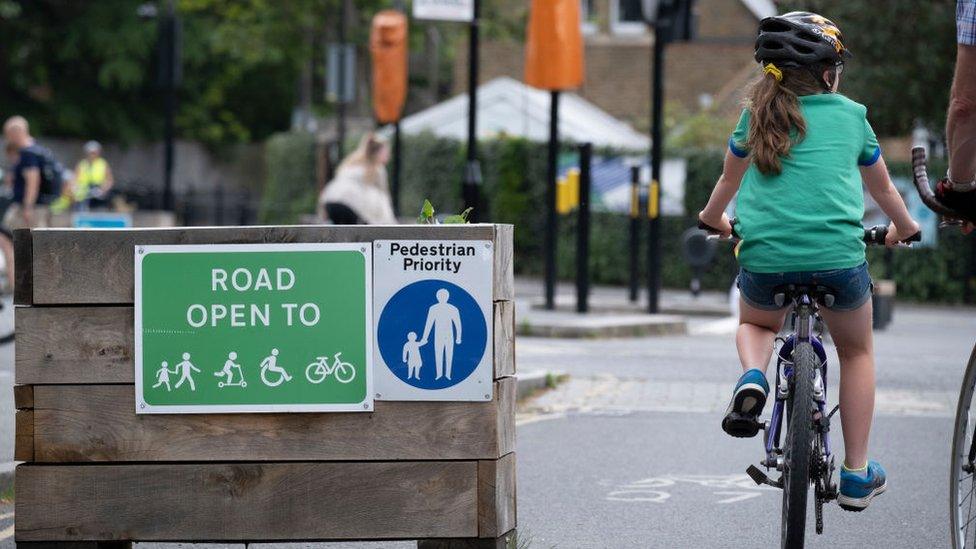
The idea of Low-Traffic Neighbourhoods is to encourage more people onto public transport, as well as reduce plollution
So what can we expect in 2023?
It is difficult to see how the industrial action on the rail and Tube will be resolved without compromise.
Normal life is due to resume after the festive period on 3 January - another strike day. In fact during the first whole week back there will be several days of walkouts.
We can probably expect more to come throughout the cold, dark winter months.
The worry is a spiral of decline if public transport doesn't sort itself out.

Follow BBC London on Facebook, external, Twitter , externaland Instagram, external. Send your story ideas to hellobbclondon@bbc.co.uk
- Published20 December 2022
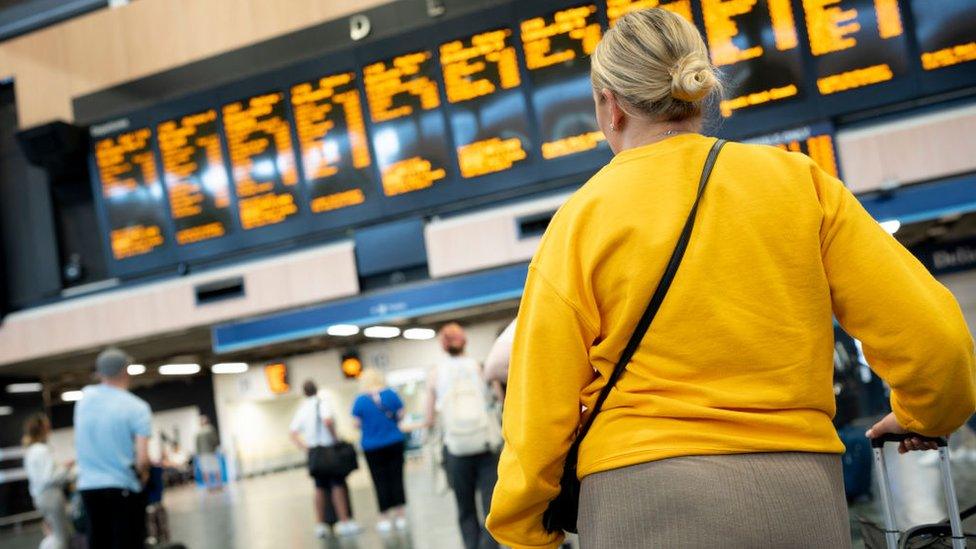
- Published9 May 2024

- Published9 December 2022
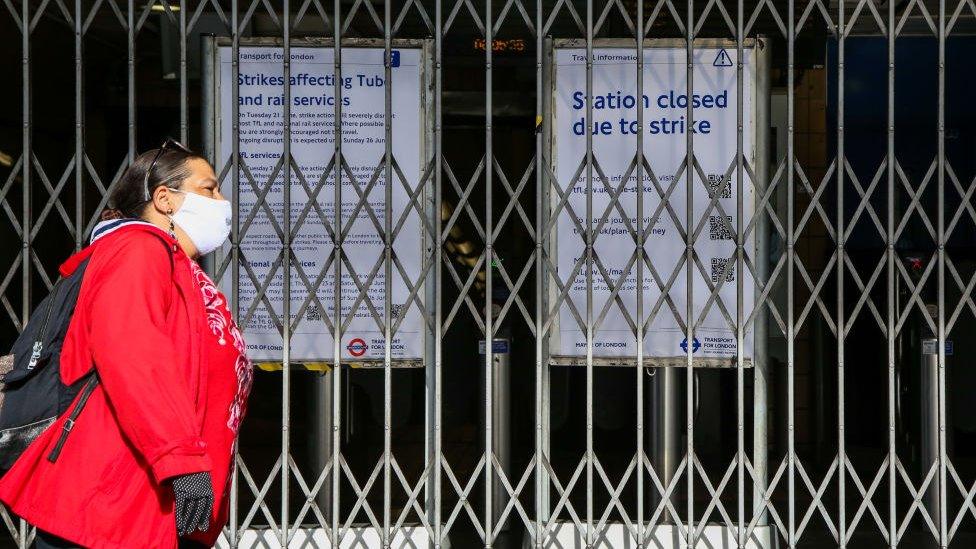
- Published6 December 2022
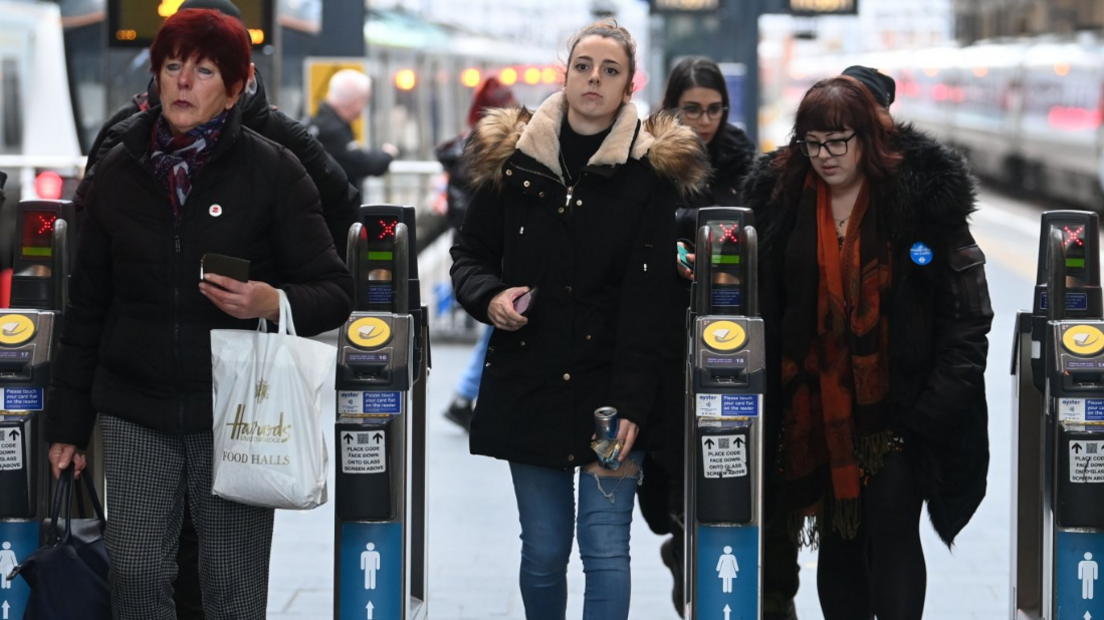
- Published25 November 2022
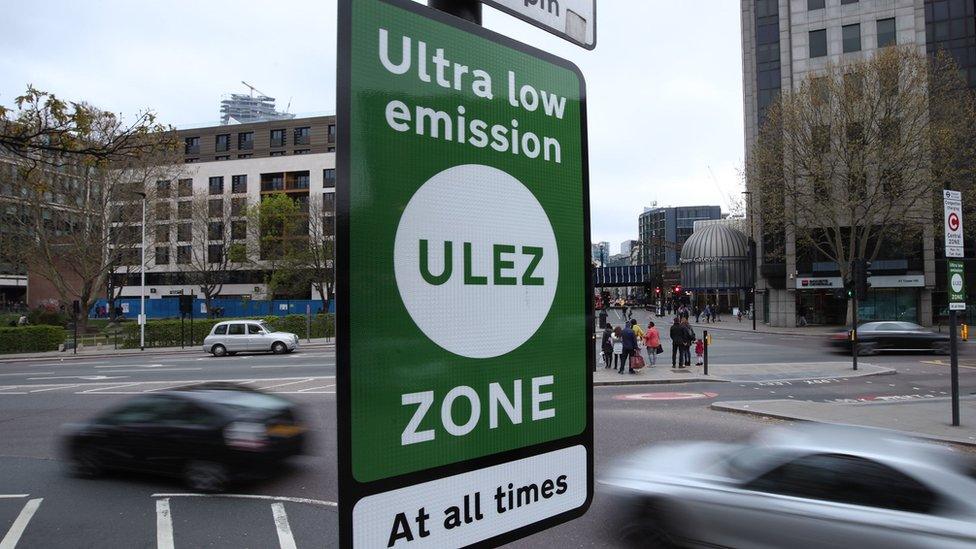
- Published25 November 2022
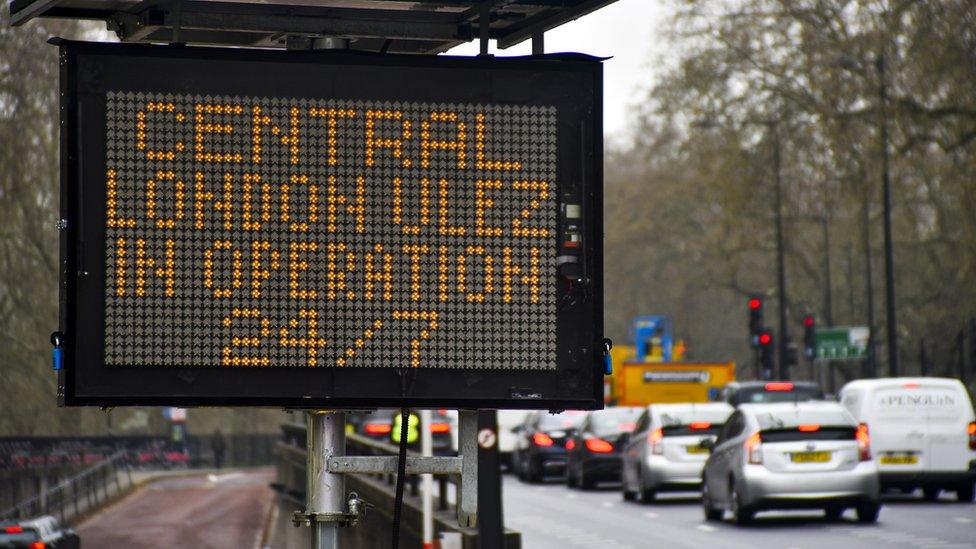
- Published24 November 2022
